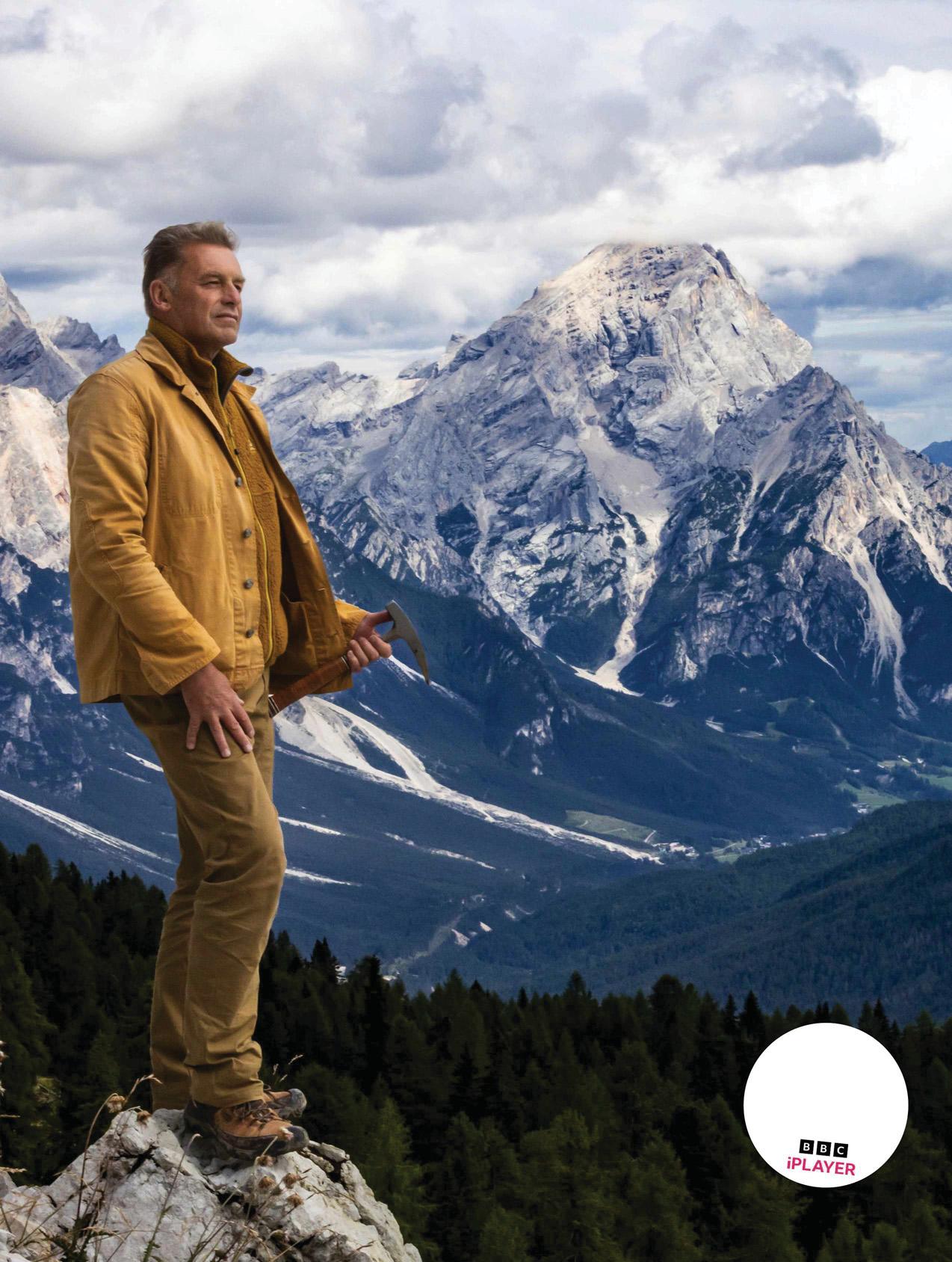Intentar ORO - Gratis
CHRIS PACKHAM VERSUS THE WORLD
BBC Science Focus
|August 2023
After conquering wildlife programming, presenter Chris Packham is taking on the planet in Earth, a BBC series that sheds new light on the history of our home. He talks Noa Leach through the show's surprising science and his guilty conscience

The camera pans around a purple mountain rising through a lush green forest. But the film glitches... something is wrong. The scene flickers with a hellish inverse: a deadly volcanic eruption. The Earth's crust splits and red light bleeds from its opening. Deadly rivers of lava veil the now-black rock, and ash and toxic gases spill into the air.
This fiery inferno is the deadliest volcanic event in Earth's history, around 250 million years ago. It's just one of many moments that have brought the planet we call home close to death - and one of the five key events that shape the BBC's new Earth series.
This is the BBC Natural History Unit's usual output reborn as a forensic crime thriller, with fossils as evidence. With Chris Packham presenting, Earth exposes the clues hidden in fossil records that reveal all the times the planet - and our long-gone ancestors - have almost been destroyed over the last 4.5 billion years.
In this way, Earth aims to show that our future has already happened, with the current climate crisis eerily echoing the past. But will we survive it this time around? We got the verdict from Chris Packham himself...
YOUR NEW SERIES COVERS BILLIONS OF YEARS OF HISTORY. HOW ON, AHEM, EARTH DID YOU FIT THAT INTO ONE SERIES?
Our mission was to present the series as a biography of our planet. It's not just about how Earth was born, but its bumpy life journey - akin to how it met its first girlfriend, got married, then divorced and then happily remarried.
We wanted to highlight the moments that had a significant impact on the planet - the key geological, planetary and life forces. And how they interact.
For example, when the lava was beneath the surface of the planet, it was burning coal, which raised the temperature of the planet by 10°C. This was catastrophic. But now here we are digging it up and burning it again!
Esta historia es de la edición August 2023 de BBC Science Focus.
Suscríbete a Magzter GOLD para acceder a miles de historias premium seleccionadas y a más de 9000 revistas y periódicos.
¿Ya eres suscriptor? Iniciar sesión
MÁS HISTORIAS DE BBC Science Focus

BBC Science Focus
World's biggest cobweb is home to 100,000 spiders
Spiders don't normally create such large colonies, so there's no need to worry about finding one in your basement
1 min
February 2026

BBC Science Focus
A dementia vaccine could be gamechanging – and available already
Getting vaccinated against shingles could protect you from getting dementia, or slow the progression of the disease
1 mins
February 2026

BBC Science Focus
DATA IN SPACE
An unusual spacecraft reached orbit in November 2025, one that might herald the dawn of a new era.
7 mins
February 2026

BBC Science Focus
Climate change is already shrinking your salary
No matter where you live, a new study has found warmer temperatures are picking your pocket
4 mins
February 2026

BBC Science Focus
A MENTAL HEALTH GLOW-UP
Forget fine lines. Could Botox give you an unexpected mental health tweakment?
3 mins
February 2026
BBC Science Focus
Most people with high cholesterol gene don't know they have it
Standard testing struggles to detect the condition
1 mins
February 2026

BBC Science Focus
HOW CAN I BOOST MY IQ?
If you're serious about getting smarter, it's time to ditch the brain-training apps
4 mins
February 2026

BBC Science Focus
Humans are absolutely terrible at reading dogs' emotions
Think you can tell how our furry friends are feeling? Think again
1 mins
February 2026

BBC Science Focus
HOW TO TEACH AI RIGHT FROM WRONG
If we want to get good responses from AI, we may need to see what it does when we ask it to be evil
3 mins
February 2026

BBC Science Focus
What Australia's social media ban could really mean for under-16s
Many people think social media is bad for our kids. Australia is trying to prove it
5 mins
February 2026
Translate
Change font size

